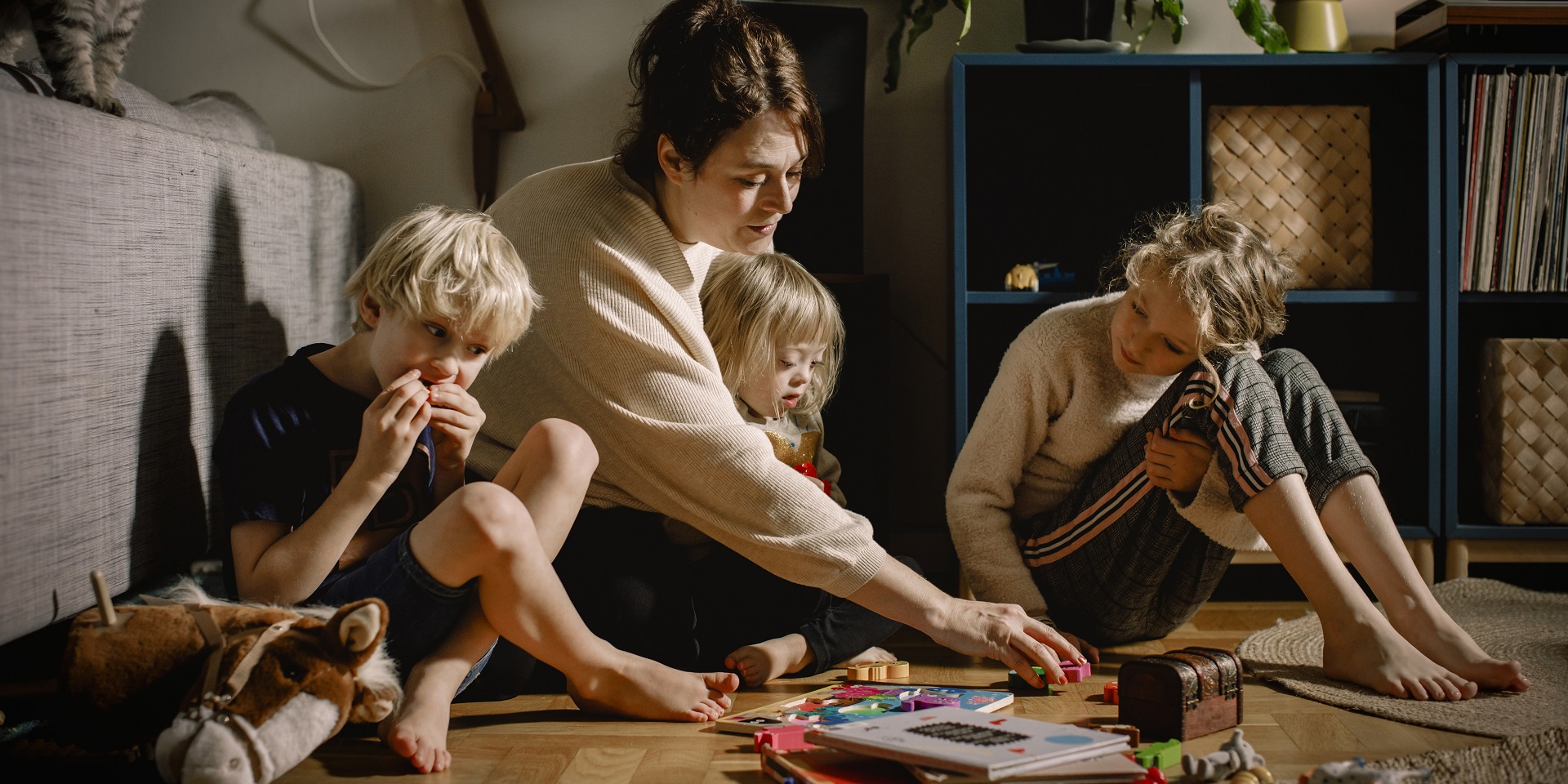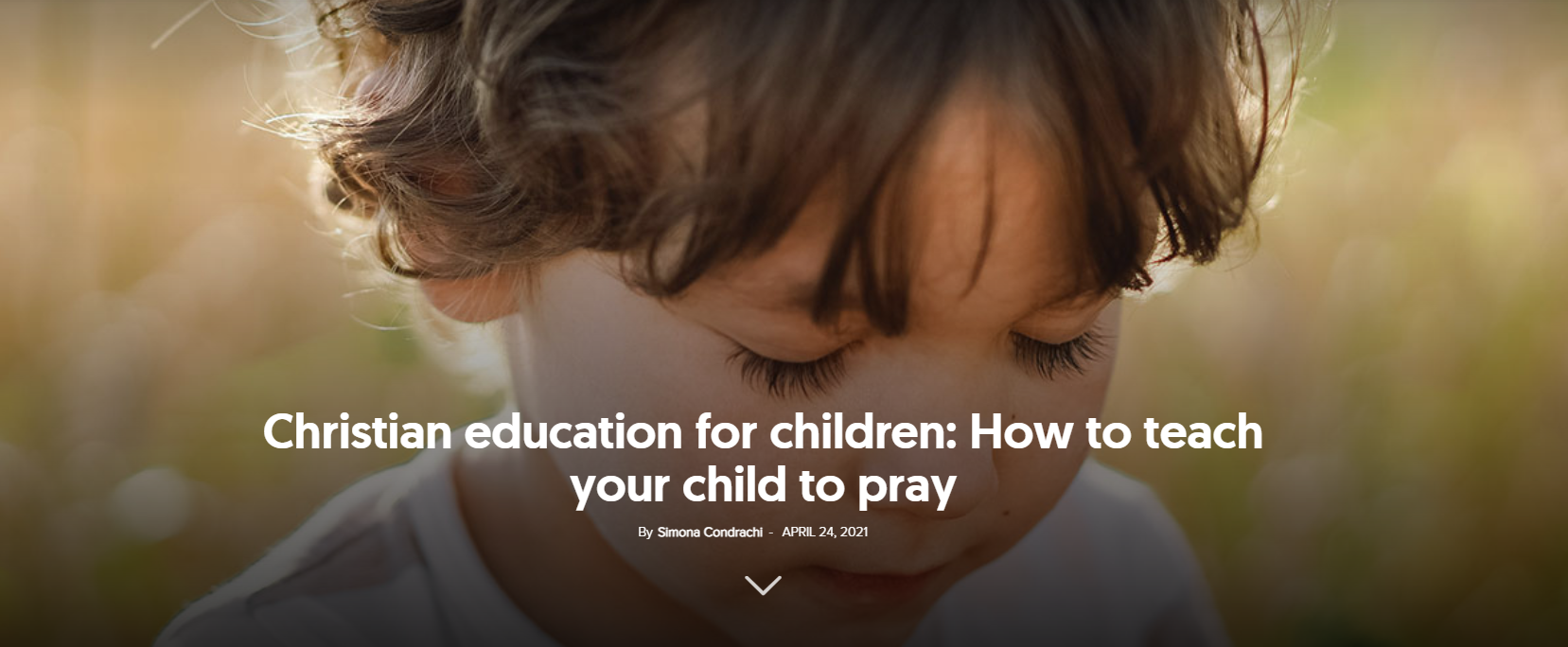As Christian parents, the most important legacy we want to leave our children is faith in God.
And probably one of the hardest parenting patterns to break is the religious pattern. It’s the realm where we’re afraid to ask ourselves if what we’re doing or how we’re doing it is good or not. It is not easy to accept that there is another valid way by which God can be discovered apart from our experience, as we often believe that by widening our horizon a little, we deviate from the right path.
Belief in God can only be good, but the way we plant it in the hearts of our children can be either to their advantage or to their detriment. In the discussions I have had with parents, they often mention the situation in which they, as children, were imposed a strict religious system, with rules and “golden” patterns which made them feel constrained, and now they want to provide a free environment for their children. Unfortunately, these parents notice that this option is not very productive either, as their children are not too attracted to religious practices. And then frustrations and confusions arise, with parents not knowing what is the right way to integrate religion into their children’s lives.
In educational theories and even in parenting trends, the unique character of the child is often taken into account. Whether it is the theory of multiple intelligences, personality types, specific aptitudes and inclinations, or needs and interests, they all draw our attention to the fact that the way each child is created is the key to success. Why wouldn’t we apply this perspective to the development of their religious life as well? While for academic performance or building a harmonious parent-child relationship we look at what suits the child better, when it comes to religion, we usually look at what we know best.
My two sons are very different from each other. The eldest is very procedural, principled by nature, and with a predominantly philosophical way of thinking. The youngest is practical, creative, and independent by nature. One Friday evening, I was at home with both of them, so I challenged them to build their own worship opportunity. They discussed and agreed to present a Bible story each. The little one went first. He was almost 4 years old at the time.
I was curious about what story he would tell, knowing that for him, things must always happen differently. He chose the story of Noah and the events followed the Scripture account up to a point. Staring intently into my eyes, he told the story of how some animal jumped into the water when Noah opened the window, and Noah quickly caught it and brought it back onto the boat… I felt like smiling widely at the funny picture he created but also scolding him a little because he added information to the biblical text. At the same time, I marvelled at his imagination, which does not allow him to freely submit to the conventional.
While I didn’t know what attitude to take first, my eldest son, who was 6 years old at the time, couldn’t take it anymore. He asked me to stop his brother because what he was saying were heresies and lies. I could read the despair and horror on his face because the story didn’t exactly follow the biblical details and because his brother was in danger of sin.
That was the moment when I understood that from the bulk of education I give to my children—which until then was diverse in terms of methods, but largely undifferentiated according to the children’s characteristics—they naturally choose what resonates with their way of thinking and their personality. Later, I also understood why the youngest son never says his prayers the same way, not even the standard ones, while for the eldest it is difficult to step outside the norms.
Now I understand that when I take into account the unique way in which each of my children is created, I am actually taking into account the personal way in which God can be revealed to them. When I stubbornly (and most of the time unknowingly) present God only in my way of understanding (which may also be inherited), then I close the doors through which God reaches the hearts of my children.
Observation and awareness
To know how to tailor the right teachings for each of my children, I need to first observe them individually: How does each one think? What types of questions do they ask? Are they action-oriented: what did they do? Are they oriented towards procedures, or systems: how did it take place?
Are they oriented towards understanding the meaning: why did they do it? Is their need to understand cognitive or experiential? How do they live life—at the level of ideas, emotions, pragmatically or artistically? What is most relevant to them? When do moments of personal, authentic discovery and learning occur? What language do they use more often? What do they talk about freely and passionately? How do they describe an object or an activity?
In order to honour the uniqueness of my children, it is important to turn my gaze to myself in the process of observation. How do I react to everything I see? Am I in a position of acceptance, judgement, or rejection? If I find myself wanting my sons to follow the same way of praying as I do, perhaps I could ask myself: Is this the only proper way to be religious?
When I realise that it upsets me to hear that they are bored at church, it would help me to ask myself: What are they not getting that they would find interesting and what can I do about it? Does it hurt me to see that they don’t pray long enough? What actually makes a long prayer better? What do I really want to happen when they pray?
Personal involvement leads to channel development
Once I discovered the channels through which God speaks more easily to my children, it was my duty to use and expand them so that they feel authentic in their relationship with Divinity.
My eldest son has a logical-mathematical but also philosophical way of thinking. For him, order, sequentiality, procedures, numbers, and cause-effect understanding are important. For him, a study of prophecy or biblical history lessons are preferable to the story of baby Moses. To learn a Bible verse, he needs to find the meaning of placing the words in a certain order and he is perfect at rendering them.
If, however, we dwell on baby Moses, beyond the care that God demonstrated, for him, the background, the connection between the details, and their meanings are more important. Engaging in this type of conversation, creating opportunities for them to ask all kinds of probing questions further ignites the flame for knowing the Divinity.
The little one, on the other hand, is creative, inventive, and pragmatic. For him, it is important to have another version of the ending. His favourite question is “What if…?” Therefore, what we can imagine about a biblical account is always an addition to discovering God, who is unchangeable. “What if the animals didn’t have enough food left in the ark?” is only an opportunity to discover a God who knew in advance what quantity to give. “What if we had three legs?” reveals a God who does not do things at random, but according to a plan.
When we look at a leaf, the eldest son needs to understand the purpose of its creation for our good and the greatness of God. The youngest son, on the other hand, needs to touch, smell, taste, let the leaf fly, and analyse its free fall to marvel at this small part of creation. For one, the gentle breeze is a phenomenon that God keeps under control, and for the other a treat that God offers—both versions being totally true.
For one of them, words are important, and then the game of inventing words to describe God is welcome. One of them takes notes arranged in tabular pages at church to later discuss the preached message with the family, while the other needs me to go step by step and help him gradually grasp the ideas.
One eagerly follows the religious service, and the other needs challenges: “What concept will you get from the sermon in the next five minutes? Complete the main concept from the last 10 minutes with the three missing words!” Or, more simply, since he also likes to draw: “Draw me a picture that describes the concept you think was conveyed!”
Everyday religion
Religion is more than the occasions of worship at church or at home. Children discover God in the mundane and the daily routine. Although planned times of study, prayer, and discussion are welcome, God speaks to them and to us much more often when children are encouraged to express themselves as they are. The comforting rays of the sun (if the children have been allowed to develop the ability to sit with themselves and enjoy their surroundings) can be a divine message.
A history lesson, correlated with biblical data, reveals God as the master of time. Mathematics can be fun when seen as an exact law of creation, especially through symmetries; music is more challenging when the child imagines what it would be like to sing in the sky or when he is encouraged to perform it as it comes from within him.
My children’s uniqueness is a gateway to heaven. When I respect the wonderful way in which they were created, I widely open the doors behind which Divinity reveals itself to them in a relevant way. By paying attention to the uniqueness of my children, I make the difference between the living, authentic religion and the formal religiosity in their life.
Simona Condrachi believes that the beauty and complexity of God are also placed in people. She believes that living authentically is a religious duty, which is why she urges parents to acquire deep personal knowledge as the first step in trying to respect who their children really are.




















